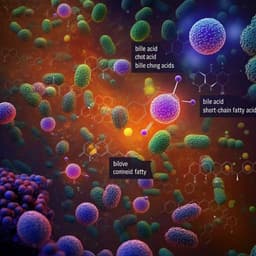
Medicine and Health
Social and psychological adversity are associated with distinct mother and infant gut microbiome variations
B. B. Warner, B. A. Rosa, et al.
This groundbreaking research by Barbara B. Warner and colleagues reveals how prenatal social disadvantage and psychosocial stressors can dramatically shape the gut microbiome in mothers and their children. With far-reaching implications for health equity, these findings highlight potential targets for interventions to improve outcomes for vulnerable populations.
Related Publications
Explore these studies to deepen your understanding of the subject.







